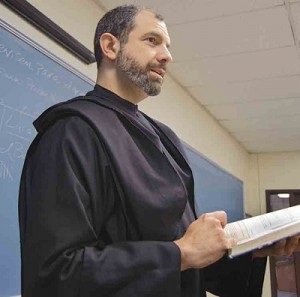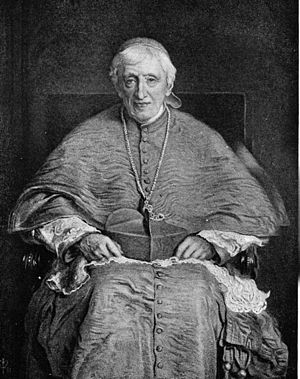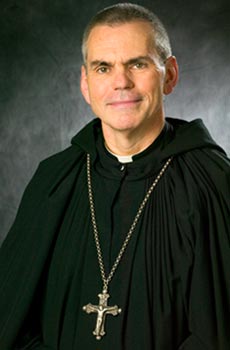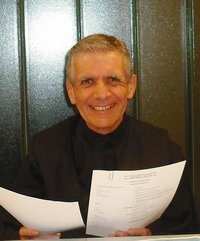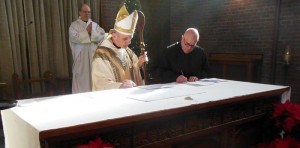 One of the missions if you will, of the Communio blog, is to share the Good News, to share the ways in which the Lord is incarnated today. One of the areas I show concern for is the monastic vocation, particularly the beauty of the life given to us through the Rule of Benedict and lived in Benedictine monasteries. Recently, the abbot of St Anselm’s Abbey (Washington, DC) gave a radio interview attending to the Benedictine vocation in which he opens up a few facets of the life. Abbot James’ interview can be listened to here.
One of the missions if you will, of the Communio blog, is to share the Good News, to share the ways in which the Lord is incarnated today. One of the areas I show concern for is the monastic vocation, particularly the beauty of the life given to us through the Rule of Benedict and lived in Benedictine monasteries. Recently, the abbot of St Anselm’s Abbey (Washington, DC) gave a radio interview attending to the Benedictine vocation in which he opens up a few facets of the life. Abbot James’ interview can be listened to here.
St Anselm’s Abbey is a Benedictine monastery located in NE Washington on 30 acres monks first started in 1924 locally before moving to its present place on South Dakota Avenue. The Abbey is part of the international English Benedictine Congregation; two other US monasteries belong to the EBC (St Louis Abbey and Portsmouth Abbey).
The monks St Anslem’s come from all over the USA; you might say that the Holy Spirit has called many to a life that has a certain richness providing the common life with a variety of ages, experience, and intellectual interests and the like. Over the years the Abbey has been a family with abundant gifts in the men who professed vows there. Abbot James mentions that recently three monks made first vows, and some others are coming to discern a monastic vocation in February.
Benedictines pray and work. In fact, it is said that the first work of a monk is pray but recalling the Rule of Benedict a monk also has to contribute to the sustenance of the common life. There is a regular, daily, round of prayer –the Divine Office–, the Sacrifice of the Mass, personal prayer which informs and forms the work is the education at CUA, Trinity College, and since 1942 a middle and high school for boys, a guesthouse where guests are received as Christ Himself. Hospitality is never lacking in a Benedictine monastery.
Abbot James speaks of the booklet From 5-9 in the interview which described the monastic life and inspired him to take the step to follow Christ as a monk at St Anslem’s Abbey. The process of discernment allows for gentle movements of the Holy Spirit to work on the soul.
Also in the interview Abbot James appeals to an insight which sums up the Benedictine gift offered by the famed Dom David Knowles who said:
the monk who in ordinary circumstances takes to any work with a zeal which burns out his fire of strength and health is departing from what is for him the way of salvation. It is not a virtue for the monk, as it might be for the missionary, to lack time in which to attend the common recitation of the Divine Office, read a certain amount, and mix with his community. And hence there should be in the Benedictine monk a certain restfulness, a contentment, not in doing nothing but in doing the familiar, even the monotonous and the ritual; an ability to remain physically unmoved and unexcited, to produce, in fact, that stability which his Founder [St. Benedict] made a distinguishing and on occasion a unique religious vow, the vow of stability, the family vow” (The Benedictines: A Digest for Moderns (St. Leo, FL: The Abbey Press, 1962), 36).
The Benedictine vocation first articulated through Saint Benedict and developed since the 6th century is one of prudence, discretion, balance, moderation; the seeking of the face of God and the pursuit of Truth. The way of salvation —the pursuit of heaven, is the essential part for all who call themselves Christian, but it is even more heightened by those who live the consecrated life according to the holy Rule of Benedict.
Saint Benedict and Saint Anslem, pray for us.
